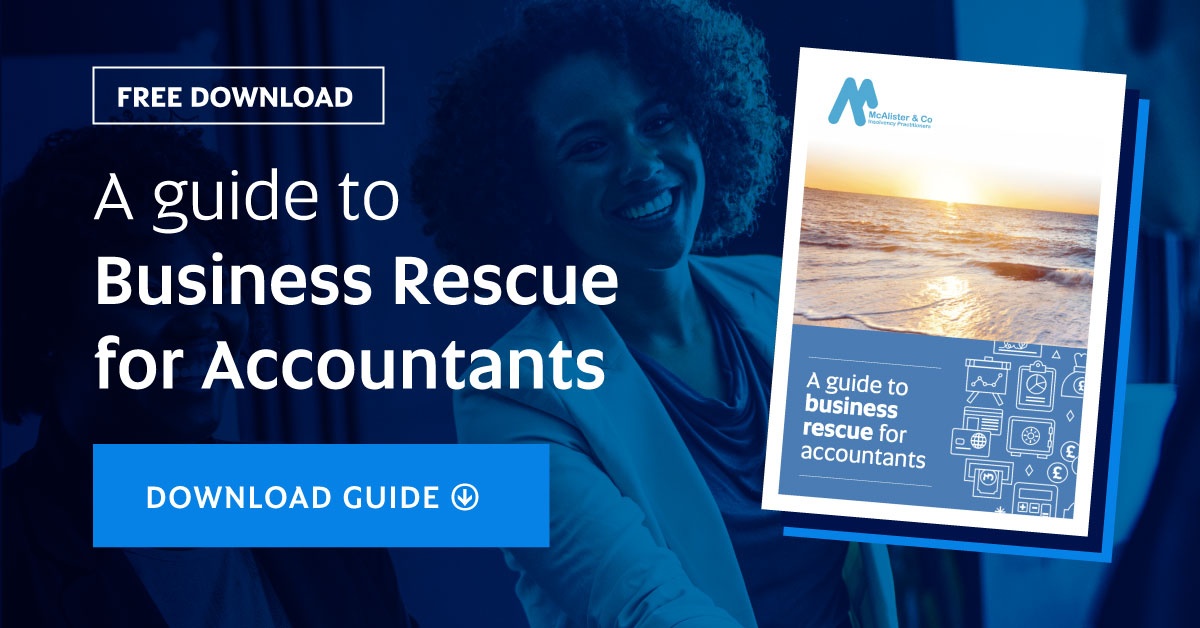
With running a business, there is always going to be a certain amount of risk involved. It’s just a fact of life. However, managing these risks requires a certain skill set, plus, it’s useful to understand the causes of business insolvency to know what to look out for.
It’s a well-known fact that over 50% of business fail within their first 3 years, but the risks that contribute to start-ups don’t suddenly disappear after those crucial first years… they’re ongoing.
So what can you do to protect your business from insolvency? No matter how long you’ve been in operation, it’s vital to be aware of what insolvency is, and how you can avoid it.
So, that’s why, in this post, we highlight the top 5 causes of insolvency, and what you can do to stay well clear of them!
Common Causes of Insolvency and Bankruptcy Every Business Should Watch For
Understanding the warning signs of insolvency or bankruptcy can be the difference between recovery and full liquidation.
Whether you're a creditor, a business owner, or simply trying to stay ahead of potential financial pitfalls, it's important to recognise how financial missteps, like poor cash flow or rising debt, can snowball into serious liability.
Depending on the type of insolvency, you may be dealing with different risks and legal obligations. The Insolvency Service offers some guidance, but knowing the causes early on helps you take control before things escalate.
1. Loss of Cash Flow
The number one thing, and probably one of the most common causes of business insolvency, is the loss of cash flow and sufficient funds. It seems simple: always have enough money. However, like most things with running a business, it’s never really as easy as it seems.
A loss of cash flow can happen over time - with things such as credit problems, accumulating bills, and payment delays building up, it can be difficult to keep on top of everything while ensuring there is enough cash in the bank. Even if your business is doing very well, and is bringing in great profits every month, it’s so important to keep enough cash aside to cover expenses such as payroll, inventory, production, taxes and other essential costs. Also ensure that you have some extra cash to spend on anything unexpected, such as hardware failure.
Always, always keep on top of your finances. Hire an accountant to help if needed - cash flow problems could happen at any time, without notice. If you fail to keep track of your company’s expenses, a small downturn in profits could be enough to wipe you out.
2. Increase in debts
Of course, too much debt results in cash flow problems, which we now know is one of the main causes of insolvency. You may have borrowed money to start up your business, as many others do, however borrowing a large sum is likely to increase the risk; just one month of poor sales could be all it takes to cause your debt repayments to exceed your overall income.
So, make sure you plan ahead by always keeping that extra bit of cash aside to deal with any problems further down the line. Minimise any further loans, especially if you’re a start-up - after all, the more debt, the greater the risk.
3. Loss of a big client or customer
Some businesses rely on just one or two customers for a large percentage of its profits. Becoming reliant on a particular client or customer faces a serious risk if they decide to switch to one of your competitors.
What would you do in this situation?
Such a huge loss of profit could land you in real financial trouble, so assess what you can do to ensure the retention of these all-important customers, or focus on acquiring new ones. The latter will give you alternative sources of income, should your larger client or customer move away.

4. New competition
New businesses are entering the market all the time. But competition isn’t always a bad thing - in some ways, it validates that your market is worthwhile, and challenges you to make your business better. However, what isn’t a good idea is ignoring them completely: growing competitors could result in a loss of market share, and therefore a loss in profit - making this a common cause of insolvency.
So, keep an eye on your competitors, whether they’re old or new, and prepare ahead of time. Assess their value and benefits, and better them. To ensure your business revenue remains unaffected, focus on retaining the customers you’ve already acquired. Loyal customers will provide you with a safety net, even if competition increases.
5. Lack of knowledge of business practices
A business practice is a procedure by which a company follows in the pursuit of its objectives. A good practice strategy can help your business to become more competitive, increase sales and revenue, improve your employees’ skills, reduce costs, and more.
So, getting basic business practices wrong could result in serious consequences.
For example, poor management of employees could lead to the loss of staff, which in turn puts pressure on the business as a whole.
To avoid getting caught out, ensure that you have a thorough understanding of business processes and procedures. Some things are easy to get wrong, too - entering a contract without being fully aware of the contractual obligations is a common, yet serious, mistake. So, be thorough, be open to adaptation, and focus on detail!
What to do if your business becomes insolvent
If your limited company is showing signs of insolvency, such as mounting debt, cash-flow issues, or being unable to pay its debts, it’s essential to act quickly. Early intervention can make all the difference when it comes to protecting your company, your creditors, and your personal position as a company director or business owner.
At McAlister & Co, we’re expert licensed insolvency practitioners with years of experience helping businesses navigate all types of financial difficulties. Whether your company’s liabilities exceed its assets or you're concerned about your ongoing financial management, we’re here to guide you through your options.
We’ll assess your company’s financial position and help you understand the most appropriate next steps, whether that’s exploring a company voluntary arrangement, liquidation, or another formal insolvency process.
Our support includes:
- Clear, confidential advice tailored to your business
- Free, no-obligation initial consultations
- A full review of your solvency, cash flow, and repayment obligations
- Strategies to reduce risk and protect your assets
We also liaise directly with creditors, HMRC, and other parties on your behalf, so you don’t have to face the pressure alone.
If you're an accountant, supplier, or adviser concerned about a client’s situation, or a director facing tough decisions, get in touch today. The sooner we talk, the more options we’ll have to safeguard your business’s future.
We’re always on hand for free, immediate and confidential initial advice, so contact a member of our team today if you’re in any doubt.

